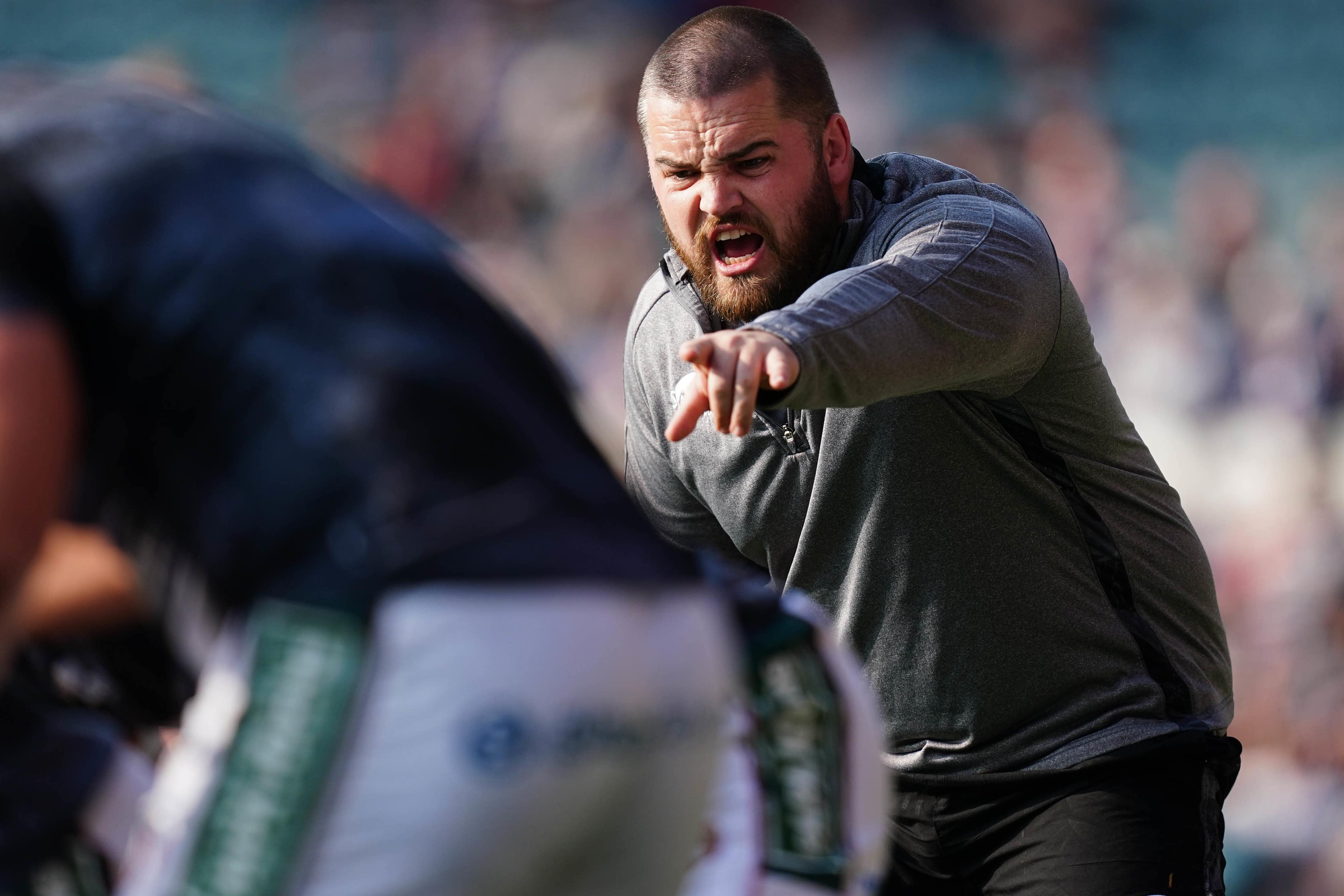England coach Tom Harrison: Rugby passion helped overcome dyslexia challenges
The 32-year-old followed Steve Borthwick from Leicester to the national team.

England’s new scrum coach Tom Harrison has revealed his passion for rugby helped him overcome some of the challenges of living with dyslexia.
The 32-year-old likens the learning difficulty, which mainly causes problems with reading, writing and spelling, to running a 100-metre race “but your lane’s got hurdles in it”.
He would often lean on twin brother Sam for help during childhood but eased his literacy issues by devouring match-day programmes bought during trips to watch Premiership club Bath.
Harrison joined the national team from Leicester at the start of June to reunite with head coach Steve Borthwick and is tasked with ensuring England’s forward pack is firing in time for the forthcoming World Cup.
“I’m hugely dyslexic, so found school hard,” he said.
“If you don’t like doing something, the majority of the time you don’t do it and I wasn’t very good at reading.
“But then when you find a love for something, you’re like, ‘OK, I can do this’. The bit for me was I found a love in rugby.
“I’m not saying had I not bought a match-day programme or had I not bought a rugby magazine I would never have been able to read or write.
“But what it allowed me to do is hone other skills that were underdeveloped.”
People with dyslexia often have strengths in other areas, such as creative thinking and problem solving.
Harrison feels that could prove advantageous to his country during the upcoming showpiece tournament in France, which England begin on September 9 against Argentina in Marseille.
I've developed different ways of thinking - some call it cognitive diversity. Sometimes they are brilliant ideas, sometimes they're horrendous.
“You have to coach players equally but differently,” he said. “Everyone has a different way of retaining information.
“For me personally, I see it as a positive. It’s almost like you are in a 100-metre race but your lane’s got hurdles in it.
“Over the course of growing up, I’ve developed different ways of thinking – some call it cognitive diversity. Sometimes they are brilliant ideas, sometimes they’re horrendous but I probably think slightly outside the box to different people.
“I see that as a problem-solving tool, it can be very beneficial. (But) I’m not the biggest fan of writing on a whiteboard and people probably can’t read my notes!”.
Harrison replaced Montpellier-bound Richard Cockerill in the England setup by following Richard Wigglesworth, Aled Walters, Kevin Sinfield and Borthwick along the well-trodden path from Welford Road to Twickenham.
Having never played the game at the top level, he has taken a less conventional route into elite coaching.
The former prop studied a sports coaching degree at Hartpury University in Gloucestershire, where current England stars Jonny Hill and Ellis Genge were among his contemporaries.
Alongside teaching the game, he went on to play for French PRO D2 side Auch – Antoine Dupont’s club as a junior – and Plymouth Albion in the Championship.
“It’s a quick route in some aspects because I’m young but actually if you go career experience, I’ve been coaching for a long time,” said Harrison, who helped Leicester win the Gallagher Premiership title in 2022.
If we want to get England back to being one of the world's best, then the scrum is an aspect where you do have to improve.
“I do have moments where I go, ‘wow, I’ve got one of the coolest jobs in the world, I get to coach my country in a sport that I love’.
“But it’s very much you’re then back down to work and actually let’s do the job rather than be in that honeymoon period.
“If we want to get England back to being one of the world’s best, then the scrum is an aspect where you do have to improve.”
Bookmark popover
Removed from bookmarks